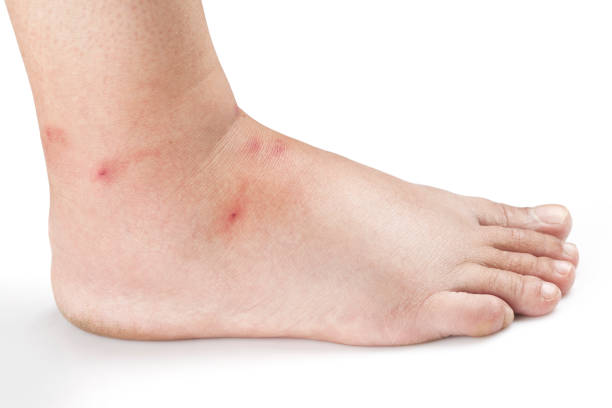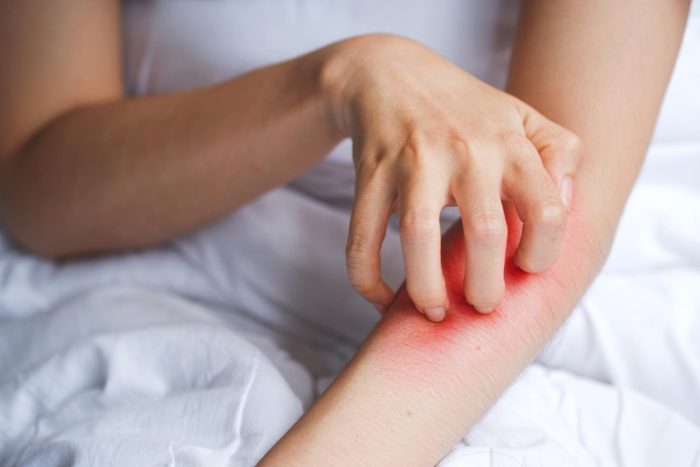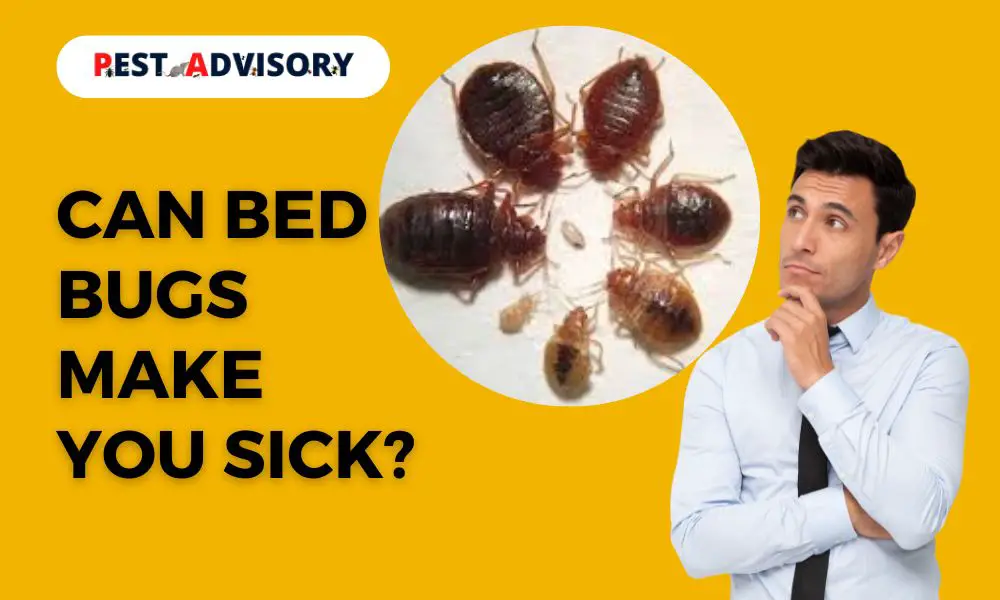It’s no surprise that people always associate pests with sickness. Common pests like mosquitoes, ticks, and fleas, all contribute to giving us one or the other diseases.
In this article, we’ll understand illnesses related to bug bites, whether bug bites can make us sick, symptoms of bites and allergies, and risk factors.
Sign and Symptoms of a Bug Bite
It is usually difficult to distinguish between a bug bite and the bite of any other pest. Here are some symptoms that can help you do the same!
o Bed bug bites are often arranged in a rough line or clusters.
o Red swollen areas with dark red centers.
o Located on or near face, neck, arms, or hand.
o Affected areas are usually itchy.
Every person does not react to bug bites in the same manner. Some may not have red bumps or itchiness on their skin, while some may even develop serious allergies or infections. The strongest indicator of bed bugs in the home is discovering the actual insect.

Can Bug Bites Make You Sick?
Even though bed bugs are not considered a medical or public health hazard, they can still make you sick! In most cases where bed bugs have made humans sick, it is either due to excessive blood loss, infection, or allergies.
Thankfully, bed bugs cannot directly transmit diseases, but there are many other ways in which they can affect our physical and mental health.
How do Bed Bugs Spread Diseases?
Bed bugs can affect your health in the following ways:
Physical Illness
Bed bugs often cause allergic reactions in susceptible individuals. Additionally, repeated scratching can lead to an infection known as cellulitis. In rare cases, where your surroundings are severely infested, bed bugs can cause anemia.
When these insects bite us, they inject an anticoagulant into the body, which is the main cause of itching. It is possible to develop an extreme reaction or anaphylaxis to this coagulant. This can result in hives, rashes, trouble breathing, or more severe symptoms.
Repeatedly bitten by Bed bugs, can lead to transmitting a number of diseases, including Chagas disease, and the Plague. In addition, bed bugs can cause anemia in people who are repeatedly bitten by them and lose a lot of blood. Bed Bugs bite is known to cause skin rashes, itching, and swelling.
Psychological Illness
Knowing that you have bed bugs in your home feeding on your blood at night can be distressing. Bed bugs more often than not compromise the victim’s mental health.
Distracting itching leads to an inability of a person to concentrate. Anticipation of more bites can cause severe insomnia as well. This leads to irritability, confusion, and anxiety.
Signs of Allergic Reaction to Bug Bites

Different people react differently to bug bites. While some people might be indifferent, in others, it can cause severe allergies or even bacterial infections.
Signs of allergic reactions include enlarged bites, painful swelling, and itchiness around the area. It may also include burning sensations and widespread rashes.
In severe cases, a person might develop anaphylaxis causing additional problems like breathing and infection. Bug bites may also cause asthmatic attacks in susceptible people.
Places with a High Risk of Bug Bites
Bed bugs are increasingly growing in the US as they can easily cling to your luggage and clothes to move from one place to another, but here are some places you can avoid to prevent an infestation in your home-
- Crowded lodgings with high turnover
- Dormitories
- Hotels
- Refugee camps
- Apartment complexes
- Crowded trains, buses, or taxis
- Homeless Shelters
How to Protect Yourself from Bed Bugs
Prevention is better than cure! The good news is, you can protect yourself from both infestations and bug bites! Here’s how-
Preventing Bites
Ø Bed bugs DO NOT get under your clothing. So, wearing a full-sleeved top and pajamas should be the most protective attire while sleeping.
Ø Use bug spray near your bed and furniture. It contains chemicals but it will keep the bed bugs away at night!
Ø You may also use mosquito nets on your bed, this will not allow bed bugs from outside to crawl up your bed.
Preventing Infestation
Ø Avoid bringing second-hand items, especially furniture into your house. Disinfect and clean any second-hand items before bringing them into your house as they might be a bed bug carrier.
Ø After coming back from a trip or lodging, check your luggage for signs of bed bugs, and clean and dry all your clothes and belongings.
How to Treat a Bug Bite Yourself?
Some products which soothe bug bites are calamine lotion, hydrocortisone cream, and antihistamines. Some home remedies have also been proven effective in treating bug bites such as applying lemon juice, baking soda, tea bags, or toothpaste.
Bug bites usually do not pose a serious medical threat and are treatable at home easily. The best way is to avoid scratching the affected area and apply antiseptic creams or lotion and take oral antihistamines.
When to See a Doctor in Case of a Bug Bite?
If you see signs of any skin infection or allergic reaction, consult a medical professional immediately and do not wait for it to grow. If you find any other symptom troubling you, like heavy breathing, triggered asthma, or bacterial infections, make an appointment with your doctor as soon as possible.
Final Words
Preventing bed bugs can be a challenging task! If you’re facing an infestation, the sooner you treat it, the better! You surely do not want any health risks on you and your family. And we’re here to help you on this journey!
We hope this article was educational and helpful. Do not panic if you notice any insect bites, and the best thing to do is consult a professional. We wish you the best of health and high spirits!
